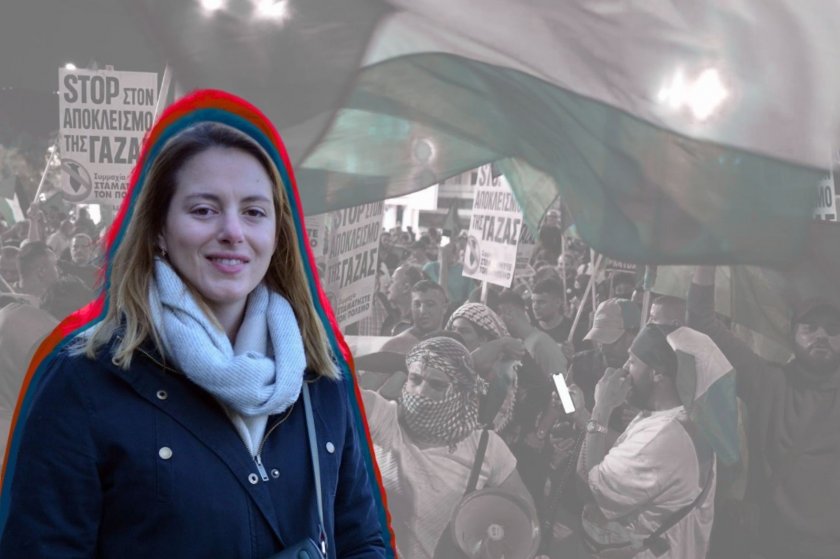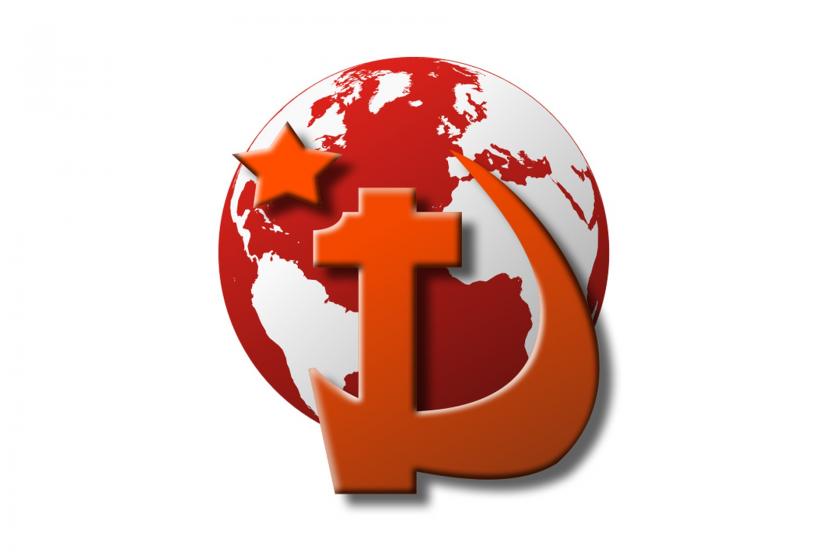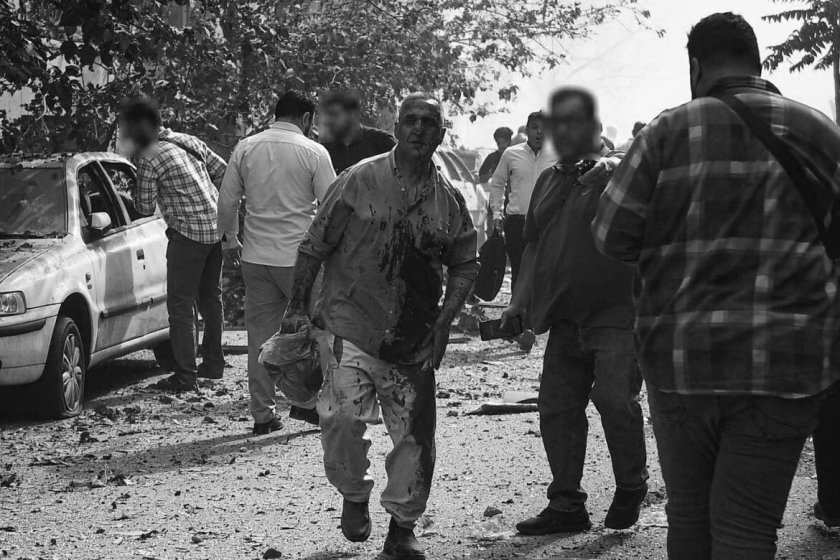Oscar López Rivera: Colonialism is a crime against humanity
Puerto Rican Revolutionary Oscar López Rivera, who got his freedom after 35 years in US prisons, spoke to Evrensel Daily.

Ekim KILIÇ
New York
Under US law, Puerto Rico is defined as an "unincorporated territory of the United States." The Caribbean Island declared bankruptcy in May 2017 due to public debt. Then, in September 2017, it suffered massive devastation caused by Hurricane Maria. Oscar López Rivera, a pro-independence popular leader of Puerto Rico, gained his freedom during the Obama presidency just before Trump’s inauguration. In 1981, he was imprisoned on charges of "conspiracy against the US authority" and sentenced to Marion (Illinois) and ADX Florence (Colorado) prisons in the United States - 35 years of his life, with more than 12 of that spent in solitary confinement. Rivera, a former member of FALN (Armed Forces of National Liberation), is called “the Nelson Mandela of the Americas”.
Oscar López Rivera stated that the US violates international law as it commits colonialism. We talked with Mr. Rivera on the 20th anniversary of the Jericho Justice Movement, which is a platform for American political prisoners.
THEY PRIVATIZED EVERYTHING
What are the economic and social consequences of Puerto Rico being a dependent country, under the US colonization?
Well, the economy of Puerto Rico is terrible. It has been terrible from the moment the United States invaded and occupied Puerto Rico in 1898.We have never been able to develop our own internal market. We have been totally, totally tore exploited. Every penny, every dollar that is made in Puerto Rico comes into the US banks.If I were going to go to a store right now and put my credit card, that money will not stay in Puerto Rico. That money comes directly into a US Bank. Yearly, billions of dollars come out of Puerto Rico. And at the same time, this is whole process of privatizing everything that is owned by the Puerto Rican people, everything that is public, they wanted to privatize it. We lost our telephone company the Puerto Rican telephone company in 1998.It was privatized. Today, the building where people were 24/7 today is an empty building.This is a shell of a building. All those workers who were forced to leave Puerto Rico and come the United States, the only place for they can get a job.The same thing happened with the airport. The same thing happened with the highways. The same thing happened with the hospitals. Today we can say that Puerto Rico’s health system is totally a sham. It doesn't exist. Because Puerto Ricans after the hurricane realized how bad how bad the hospital situation in Puerto Rico. The threat is to life of Puerto Ricans, because the health conditions are terrible. So they're faster follow the plight of the Puerto Rican today a colony of The United States. Now, I want to make this point clear: Colonialism is a crime against humanity. Since 1898, United States has been committing that crime against Puerto Ricans.Andwe need a Puerto Rico to be an independent sovereign nation. That’s why we want to Puerto Rico to be decolonized.
THE US REPRESSED ALL MOVEMENTS FOR FREEDOM
Why has not Puerto Rico gained its independence yet? What are the factors behind it?
Because the US has been able to repress every movement. I am one of the person who spent35 years in prison. Because I fight for the independence of Puerto Rico. But historically since 1898, Puerto Ricans have been sent to prison for wanting Puerto Rico to be an independent and sovereign nation since 1898.So for 120 years we have been persecuted, we have been criminalized and we have been sent to prison for wanting Puerto Rico to be an independent and a sovereign nation
Mr. Rivera, you visited municipalities in Puerto Rico at last week. What did you see? How may you characterize the last situation in Puerto Rico after the hurricane?
The situation in Puerto Rico is probably the worst conditions that we have felt, probably, in the last 70 years. Because the only time there we have a such an experience was when the United States was in the Depression and Puerto Rico suffered the depression three times of what the United States people were suffering here in this country. Because Puerto Rico subjected to real terrible conditions once that the depression happened. And today, the last 20 years, we have been facing the same economic situation, exploitation, exploitation, privatization. And since the hurricane, we have not been able to really get Puerto Rico into a situation that we can say it’s livable. There are towns in Puerto Rico with %72 of the population without electricity, the people without water, the people the people who have no homes at all. So those are the conditions facing in Puerto Rico right now.
PUBLIC SCHOOLS WERE CLOSED
How has the struggle for independence been affected by events such as the economic crisis, in which the country was declared bankrupt, or the referendum, in which a demand for US statehood was articulated?
First of all, the Congress of the United States passed a law and approved by the Obama administration that they pose this, what is called, fiscal control board.Seven persons, not elected by the Puerto Rican people, not chosen by the Puerto Rican people, but chosen by Washington. Those seven people determine what's going to happen in Puerto Rico. For example in the last 3 or 4 years, we have had probably close to 300 schools close already. These are part of the our school system in Puerto Rico. Last year, 157 public schools were closed in Puerto Rico. The threat right now because they want to close to 300 schools more. They're talking about fire 7000 teachers. If we get that passed into law, we will lose over probably as many as 7000 teachers or more. Probably7000 to 10000 teachers are being threatened right now. Those teachers who we need in order to have an education system in Puerto Rico. That's not the issue that they are concerned. What they want to do is to get a debt, an audacious and criminal debt of 74 billion dollars that the United States government has been complicit in the making on the creation of debt. We have been asking foran audit inorder to know for us, for the Puerto Rican people to know exactly how the money was spent. We have been denied every opportunity, every time that we have gone before the courts, every time that we have asked, we have been told there's not going to be an audit of the debt. Now who are that have the money? Who are the 74 billion dollars went to? We don’t know. We would like to know.
THE US WANTS TO GET BACK ITS DOMINATION IN SOUTH AMERICA
Is there any solidarity network in Caribbean between local forces for anti-imperialism, anti-colonialism and anti-capitalism?
I think in the Caribbean we have Cuba as a model. In South America, we have Venezuela as a model.In Central America, we have Nicaragua as a model.In South America, we have Bolivia as a model.Those are countries that are functioning. And those are countries that no matter how much the United States is trying to do restore their economy and take over their governments. They have been able to survive. And so, I think that we have plenty of examples where countries have been able to come together, to have their own governments, to have less and less interference of the United States. But the United States does not stop to interfere. The people in the countries whether it's Bolivia, whether it is Ecuador, whether is Venezuela, whether is Cuba, the people there are the ones forced the USto not be able to take over their country. They want to take it over. They want to go back to the oligarchies, and go back to domination in their countries in South America that are in most conditions, but the ones that are fighting for their own countries do want that they want a different kind of system, a system that represents the interests of the people, not the interests of the privileged few. Those countries are really moving. And I hope that they will continue to move, and that more and more countries will become just like a system with a system of a political and economic system that responds to the interests of the people, whether it is in Argentina, whether it is in Brazil, whether it is in Uruguay, whether it is in Chile, whether it is in Colombia. Whatever country there is in South America, in Central America, in the Caribbean, every country to have its all power, its all government and the government represents the interests of the people, not like in the case of Puerto Rico where the government of the United States represents the interests of the United States, not the interests of the Puerto Rican people.
PUERTO RICO CAN DEFEAT COLONIALISM
One year ago, you gained your freedom. And you were a freedom fighter before, and you are still a freedom fighter. What are your plans or suggestions for the fight for independence of Puerto Rico?
Well, our goal right now is decolonize Puerto Rico. And we're saying is very simple, it's a very simple message. If we love Puerto Rico, if we love our culture, if we love our identity, if we love our way of life, then it behooves us to fight for Puerto Rico and decolonize Puerto Rico. Puerto Rican nation is viable. A Puerto Rican nation can be created and be a very strong nation. We have to work with all to do what we have to. We have human resources. We have the natural resources. We have also the potential for transforming Puerto Rico into the nation that has the potential of it. I believe that we are capable of doing it. We will definitely fight until our last breath to make Puerto Rico the nation that has the potential of being. We haveto fight, we have to struggle. We know that most of all Puerto Ricans love Puerto Rico. And based on the love, we are going to decolonize Puerto Rico.
The United States has been able to get away with doing what he's doing to Puerto Rico. Because the rest of the world sometimes ignores the United States, or sometimes becomes an ally of the United States. So at this particular moment, it should be in the hands of the General Assembly to take a position and stop colonizing Puerto Rico, force the United States government to respect the international law. Because international law says that colonialism is a crime against humanity. And the whole world should be behind Puerto Rico in this issue of the colonization.
Forwarding to the next article...
10 seconds remaining







Follow Evrensel